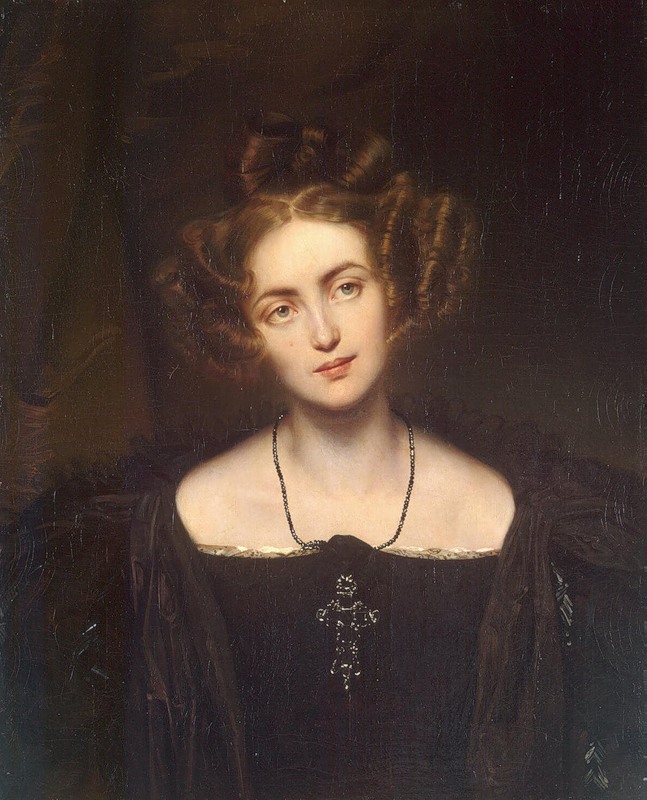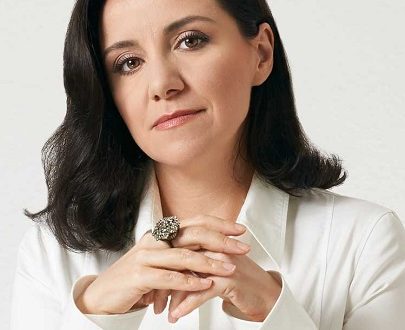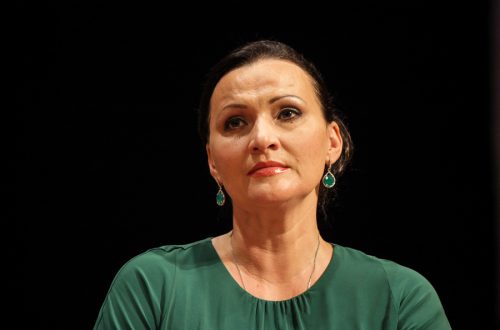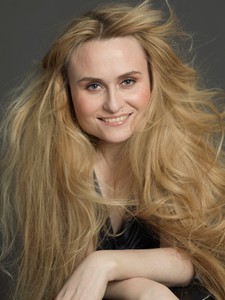
Henriette Sontag |
Henrietta Sontag
Henrietta Sontag is one of the most celebrated European singers of the XNUMXth century. She possessed a sonorous, flexible, unusually mobile voice of a beautiful timbre, with a sonorous high register. The artistic temperament of the singer is close to the virtuoso coloratura and lyrical parts in the operas of Mozart, Weber, Rossini, Bellini, Donizetti.
Henrietta Sontag (real name Gertrude Walpurgis-Sontag; Rossi’s husband) was born on January 3, 1806 in Koblenz, in a family of actors. She took the stage as a child. The young artist mastered vocal skills in Prague: in 1816-1821 she studied at the local conservatory. She made her debut in 1820 on the Prague opera stage. After that, she sang in the capital of Austria. Widespread fame brought her participation in the productions of Weber’s opera “Evryanta”. In 1823 K.-M. Weber, having heard Sontag sing, instructed her to be the first to perform in the main role in his new opera. The young singer did not disappoint and sang with great success.
In 1824, L. Beethoven entrusted Sontag, together with the Hungarian singer Caroline Ungar, to perform solo parts in the Mass in D Major and the Ninth Symphony.
By the time the Solemn Mass and the Symphony with the choir were performed, Henrietta was twenty years old, Caroline was twenty-one. Beethoven had known both singers for several months; he took them in. “Since they tried at all costs to kiss my hands,” he writes to his brother Johann, “and since they are very beautiful, I preferred to offer them my lips for kisses.”
Here is what E. Herriot said: “Caroline is intriguing in order to secure a part for herself in the very “Melusine”, which Beethoven planned to write on the text of Grillparzer. Schindler declares that “this is the Devil himself, full of fire and fantasy”. Thinking about Sontag for Fidelio. Beethoven entrusted them with both of his great works. But the rehearsals, as we have seen, were not without complications. “You are a tyrant of the voice,” Caroline told him. “These high notes,” Henrietta asked him, “could you replace them?” The composer refuses to change even the slightest detail, to make the slightest concession to the Italian manner, to replace a single note. However, Henrietta is allowed to sing her mezzo voce part. The young women retained the most exciting memory of this collaboration, many years later they admitted that each time they entered Beethoven’s room with the same feeling with which believers cross the threshold of the temple.
In the same year, Sontag will have triumphs in Leipzig in the performances of The Free Gunner and Evryants. In 1826, in Paris, the singer sang the parts of Rosina in Rossini’s The Barber of Seville, dazzling the picky audience with her variations in the singing lesson scene.
The fame of the singer is growing from performance to performance. One after another, new European cities enter her touring orbit. In subsequent years, Sontag performed in Brussels, The Hague, London.
The charming Prince Pückler-Muskau, having met the actress in London in 1828, was immediately subdued by her. “If I were a king,” he used to say, “I would allow myself to be carried away by her. She looks like a real little cheat.” Pückler genuinely admires Henrietta. “She dances like an angel; she is incredibly fresh and beautiful, at the same time meek, dreamy and of the best tone.
Pückler met her at von Bulow’s, heard her in Don Giovanni, greeted her backstage, met her again at a concert at the Duke of Devonshire, where the singer teased the prince with completely harmless antics. Sontag was enthusiastically received in English society. Esterhazy, Clenwilliam are inflamed with passion for her. Püclair takes Henriette for a ride, visits the environs of Greenwich in her company, and, completely captivated, longs to marry her. Now he speaks of Sontag in a different tone: “It is truly remarkable how this young girl retained her purity and innocence in such an environment; the fluff that covers the skin of the fruit has retained all its freshness.
In 1828, Sontag secretly married the Italian diplomat Count Rossi, who was then the Sardinian envoy to The Hague. Two years later, the Prussian king elevated the singer to the nobility.
Pückler was as deeply saddened by his defeat as his nature would allow. In Muskau Park, he erected a bust of the artist. When she died in 1854 during a trip to Mexico, the prince erected a real temple in her memory in Branitsa.
Perhaps the culmination of Sontag’s artistic path was her stay in St. Petersburg and Moscow in 1831. The Russian audience highly appreciated the art of the German singer. Zhukovsky and Vyazemsky spoke enthusiastically about her, many poets dedicated poems to her. Much later, Stasov noted her “Raphaelian beauty and grace of expression.”
Sontag really possessed a voice of rare plasticity and coloratura virtuosity. She conquered her contemporaries both in operas and in concert performances. It was not for nothing that the singer’s compatriots called her the “German nightingale.”
Perhaps that is why Alyabyev’s famous romance attracted her special attention during her Moscow tour. He talks about this in detail in his interesting book “Pages of A.A. Alyabyeva” musicologist B. Steinpress. “She was very fond of Alyabyev’s Russian song “The Nightingale,” wrote the Moscow director A.Ya. to his brother. Bulgakov cited the words of the singer: “Your lovely daughter sang it to me the other day, and I liked it very much; you have to arrange the verses as variations, this aria is very loved here and I would like to sing it“. Everyone very much approved of her idea, and … it was decided that she would sing … “Nightingale”. She immediately composed a beautiful variation, and I dared to accompany her; she does not believe that I do not know a single note. Everyone began to disperse, I stayed with her until almost four o’clock, she repeated the words and music of the Nightingale once more, having deeply penetrated into this music, and, surely, will delight everyone.
And so it happened on July 28, 1831, when the artist performed Alyabyev’s romance at a ball arranged in her honor by the Moscow Governor-General. Enthusiasm is rapture, and yet in high-society circles a professional singer could not help being disdainful. This can be judged by one phrase from Pushkin’s letter. Reprimanding his wife for attending one of the balls, the poet wrote: “I don’t want my wife to go where the owner allows himself inattention and disrespect. You are not m-lle Sontag, who is called for the evening, and then they do not look at her.
In the early 30s, Sontag left the opera stage, but continued to perform in concerts. In 1838, fate again brought her to St. Petersburg. For six years her husband, the Count of Rossi, was the ambassador of Sardinia here.
In 1848, financial difficulties forced Sontag to return to the opera house. Despite a long break, her new triumphs followed in London, Brussels, Paris, Berlin, and then overseas. The last time she was listened to was in the Mexican capital. There she died suddenly on June 17, 1854.





